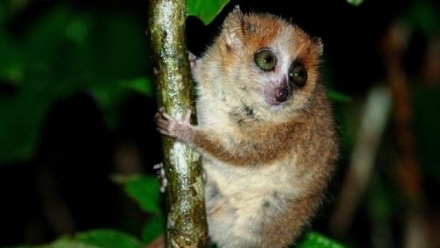Olfactory predator recognition in the Brown Mouse Lemur

This study took place across 4 years in Ranomafana National Park, Madagascar and tested how a primitive small nocturnal primate, the brown mouse lemur (Microcebus rufus), perceived snake, avian and mammalian predator odors. Fifteen predator and control stimuli were presented to more than 60 subjects in two different experiments: 1) Over 100 trials were conducted in a controlled laboratory setting and over 800 live traps were used in a more natural forest experiment. In the laboratory Mouse lemurs feared predator odors significantly more often than non-predator stimuli but they did not differentiate between familiar and unfamiliar predators. However, in forest trials neither predator nor control odors affected the likelihood of capture. While the laboratory trials showed that mouse lemurs are capable to differentiate between predator and non-predator scents this was not evident in the forest trials - possibly because there was more sensory information. Odors are unreliable cues as they are longlasting and thus may not contribute much to assessing the level of danger. In the absence of additional risk cues, such as visual ones, mouse lemurs probably quickly habituate to the odor and eventually enter traps. Furthermore, behavioral and perceptual differences among and within mouse lemur subjects suggest that learning and experience play an important role.
Dr Anja Deppe is a primatologist and animal behaviorist with a focus on cognitive and sensory ecology. Anja received her PhD (2011) in Anthropological Sciences with a focus on primate behavior and ecology from Stony Brook University, NY, USA. There she also taught an undergraduate course on human perception, emotions, and ESP, and lectured at the Stony Brook University School of Medicine about the placebo and nocebo effect. From 2012-2014 she was the Director of the Turkana Basin Institute Field School and where she managed a 3 month-long human-origins field school program in Kenya. Prior to coming to ANU, she was a lecturer in zoology and biological anthropology at the University of Birmingham in England. Over the past 13 years she has further been contributing to the Stony Brook University/Institute for the Conservation of Tropical Environments primate field school program based at the Centre ValBio research station in Ranomafana National Park as a lecturer, program coordinator, and student research supervisor.








